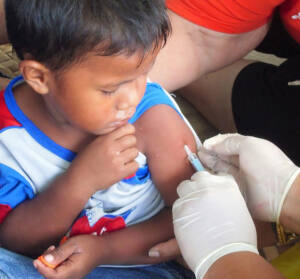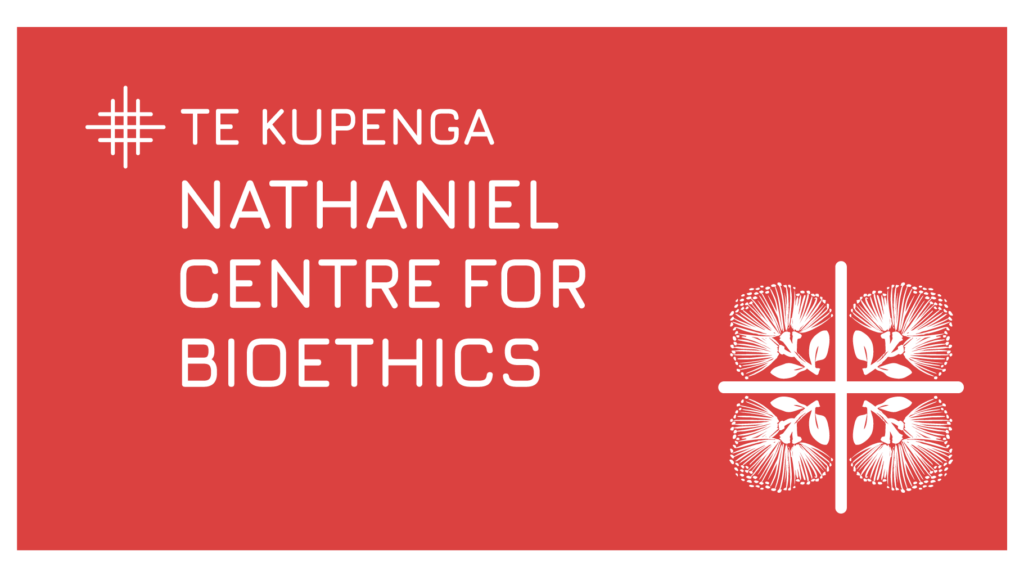WelCom June/July 2023

Staff of the Nathaniel Centre for Bioethics – Te Kupenga

There is growing concern in Aotearoa-New Zealand about low rates of childhood immunisations against diseases such as measles, mumps and rubella. As reported in The New Zealand Herald in February 2023: ‘As of December [2022], 82 per cent of 2-year-olds were up to date with their immunisations, down from 91 per cent before the pandemic. For Māori children, the rate is just 66 per cent. Coverage of 90 to 95 per cent is needed for herd immunity.’
The potential for a new measles outbreak was highlighted recently by a male traveller to Aotearoa-New Zealand testing positive for measles, the first case of the highly infectious case being detected since 2019 when an outbreak grew to 2200 cases and also spread to Samoa where it killed 83 people, 87 per cent of them children under 5 years of age. The following article provides an update on the disease and information on the measles vaccination.
What is measles?
Measles is an extremely infectious disease which spreads quickly through water droplets coughed or sneezed into the air. It can cause rare but serious complications such as encephalitis (which can result in brain damage), a blood-clotting disorder, and inflammation in the lungs, heart, kidneys or liver. Infection during pregnancy increases the risk of miscarriage and premature birth. Critically, the measles virus attacks the white blood cells that protect us against other infections, wiping out our immunity to diseases we have already had. Before a measles vaccine was available, it is estimated that measles was the direct or indirect cause of over half of all childhood deaths from infectious diseases.
How is measles treated?
There is no effective treatment for measles. Medical care can only help to manage severe complications.
What is the measles vaccine against administered?
The measles vaccine is combined with two other vaccines which protect against mumps and rubella. Commonly referred to as the ‘MMR vaccines’, they contain live measles, mumps and rubella viruses that have been weakened (attenuated). These weakened viruses stimulate the immune system to produce an immune response to and immune memory of each of the viruses. The three vaccines are combined in one shot to increase immunisation coverage.
How effective is the vaccine against measles?
The vaccine is regarded as highly effective. Over the last 20 years, vaccination has reduced the number of global deaths from measles. Since 1990, it is estimated that over one in five of all child deaths averted have been due to the measles vaccination.
Since 1990, it is estimated that over one in five of all child deaths averted have been due to the measles vaccination.
How safe is the vaccine?
While no vaccine is 100 per cent completely risk-free, the MMR vaccine has a strong safety record. Evidence from decades of research and monitoring indicates that vaccinating against a disease is much safer than not vaccinating. However, it should not be given to anyone who is immunosuppressed or pregnant.
As with any vaccine, there is a very small chance of a severe allergic reaction known as anaphylaxis, which causes life-threatening breathing and/or circulation problems and must be treated with adrenaline.
In the 1990s, a study was published in The Lancet medical journal that claimed there was a link between MMR vaccines and the development of autism. However, no link was ever found despite further extensive research. More importantly, the study in question has now been discredited and retracted, and the authors found guilty of ethical violations, scientific misrepresentation, and deliberate fraud.
Is there a link there between abortion and the vaccine?
There is a very distant connection between abortion and the rubella component of the vaccine, which is grown on human cell lines started, many generations ago, from a fetus legally aborted for reasons unrelated to medical research. The cell lines involved today are not the original cells taken from the foetus. They are made up of ‘descendant cells’ called ‘immortal cell lines’ because they are artificially created and maintained in a state of continual replication under laboratory conditions.
In a note on vaccines published in 2017, the Pontifical Academy for Life stated that use of the MMR vaccine does not, in itself, signify moral endorsement of the vaccine production process or complicity with abortion. This means the MMR vaccine can be used in good conscience in the interests of protecting unborn children and the health of others.
This article is a summary of a longer one featured in Issue 69 of the Nathaniel Report. The full article can be read here.
If you have any questions about the immunisation of your children, please talk to your GP or Plunket Nurse.

The Nathaniel Centre for Bioethics is an agency of the New Zealand Catholic Bishop’s Conference of Aotearoa New Zealand. The agency is responsible for research and advocacy on bioethical issues. The Nathaniel Centre is formally affiliated with Te Kupenga – Catholic Leadership Institute.